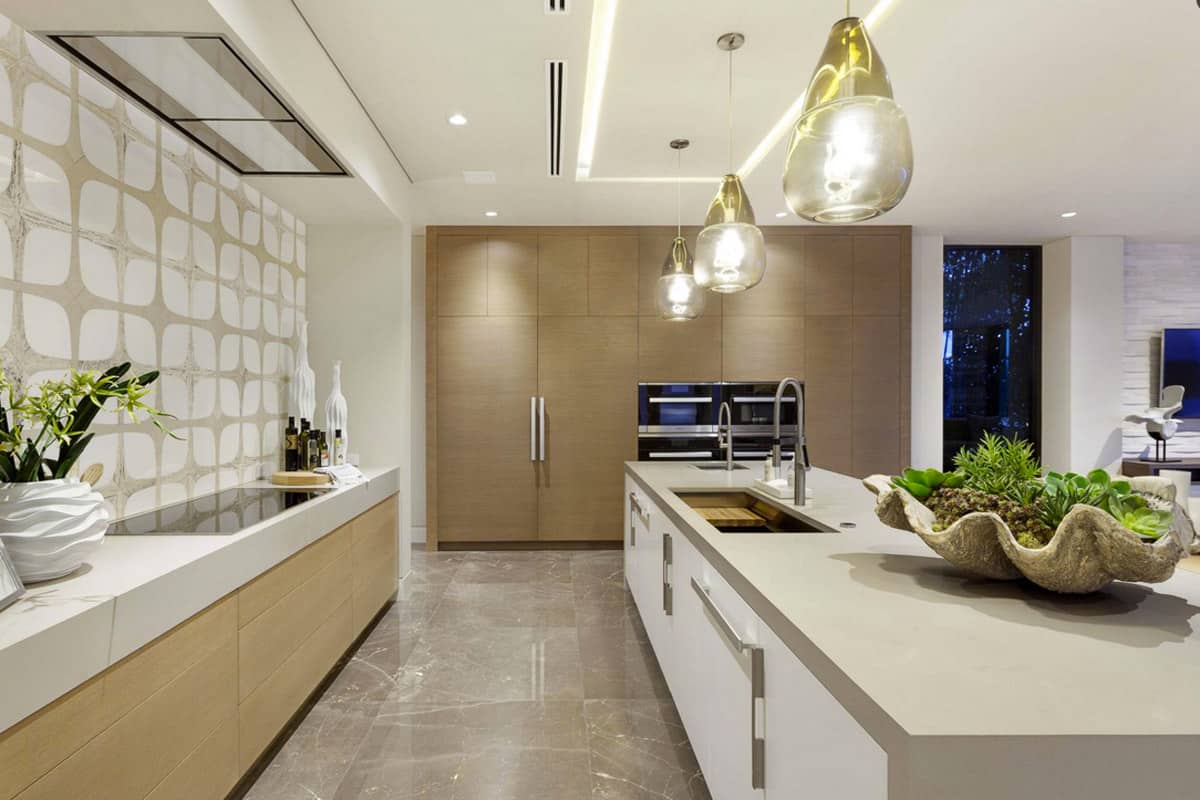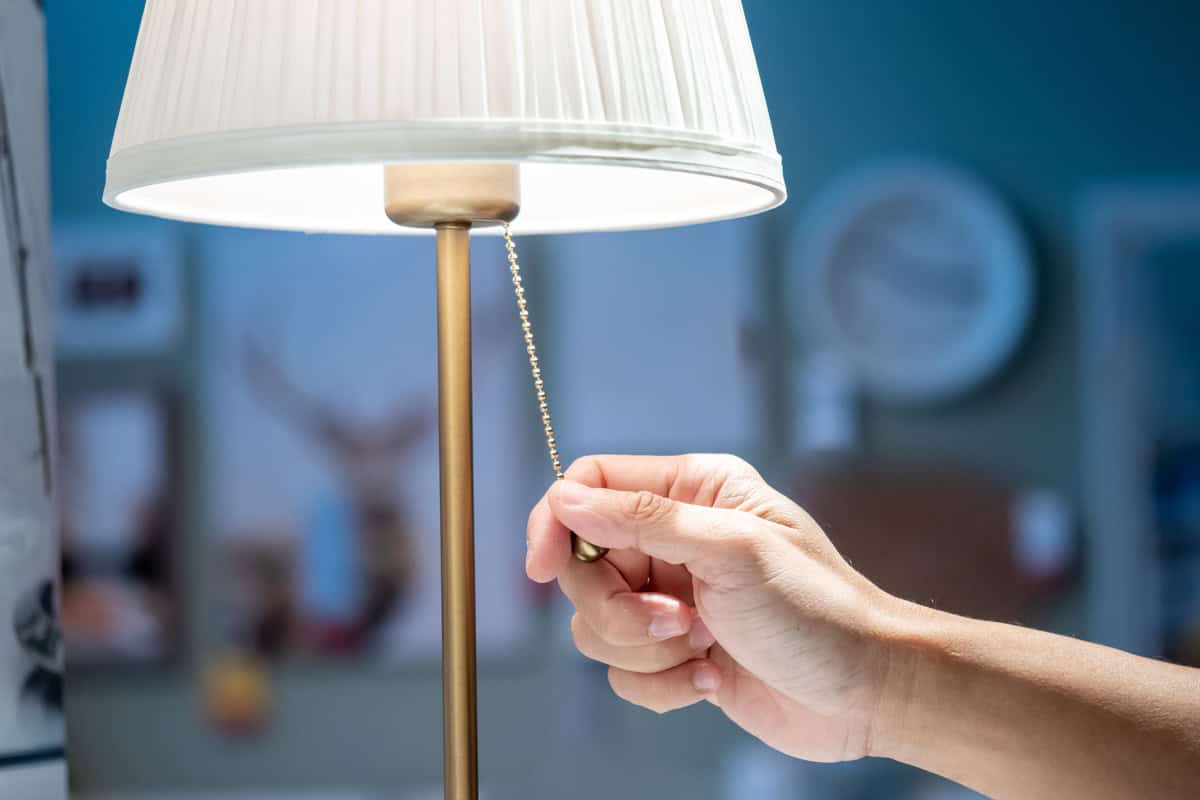Looking to make a new bold statement in your kitchen? New appliances and cabinets can make a big difference, but the one item that ties everything together is your kitchen countertops. Think of them as the ambassador to the rest of your kitchen’s décor.

We put together this quick kitchen countertop guide to help you choose the material that will work best for your kitchen. Let’s jump in and see what might work best in your Fort Lauderdale luxury home!
Budget
Whenever you’re thinking about making an improvement to your home, it’s important to consider resale value. The key is not to over improve your home. Also, steering clear of exotic or highly personal materials will help your home appeal to more buyers, which will likely improve your chances of a quicker sale.
With those resale tips in mind, it’s helpful to determine your budget. Think about how much you can comfortably spend on new countertops.
Popular Kitchen Countertop Materials
Improvements in material science and manufacturing has yielded a large selection of countertop materials to choose from. Following are the 10 most popular kitchen countertops, in no particular order.
1. Natural Stone
Stone is a highly durable material that can endure the kind of activity that takes place in an active kitchen. The natural variations in textures and colors provides lots of options. The most popular stones are granite and marble. While granite’s popularity has been waning slightly in the Fort Lauderdale luxury real estate market, it is still regarded as a luxurious item.
Pros:
- Durable and long-lasting
- Heat resistant
- Classic, natural material
Cons:
- One of the more expensive materials
- Porous and needs to be sealed upon installation
2. Cultured Stone
Also known as quartz, this type of kitchen countertop includes a manmade blend of quartz and pigments that have the look and feel of natural stone. Popular brand names include Silestone and CaesarStone. Cultured stone is more expensive than other options. However, it doesn’t require sealing or a lot of maintenance.
Pros:
- Heat, scratch and stain resistant
- Does not require sealing or special care
Cons:
- Costs as much and sometimes more than real stone
- Does not look as natural as real stone
3. Solid Surface
There are over a dozen manufacturers of solid surface countertops, including DuPont Corian, Formica and Wilsonart. This type of non-porous material has been around for over 50 years. In recent years, some homeowners have turned to other alternatives due to the potential for this type of material to scratch.
Pros:
- Easy to clean
- Moisture-resistant
- Will not fade over time
Cons:
- Not scratch-proof
- Can be scorched
4. Laminate
This type of kitchen countertop is constructed with a thin sheet of plastic resin over particleboard or plywood. Materials have come a long way from the bubbled Formica countertop you may have seen in older homes. There is a large selection of attractive options that mimic more expensive countertop materials for a fraction of the price.
Pros:
- Lowest cost
- Easy to clean
Cons:
- Hot pans and sharp knives can damage laminate
- Can only accommodate drop-in sinks
- Cracks, deep scratches and scorch marks cannot be repaired
5. Wood
Butcher block is the most popular type of wood countertop. Another option is a crafted wood slab. Both options can add instant warmth to your kitchen. Fort Lauderdale luxury homes with wood countertops tend to use them as an accent, like on an island or preparation area.
Pros:
- Timeless material that, over time, can develop a charming patina
- Can be used as a cutting or chopping surface without dulling knives
Cons:
- Vulnerable to heat, moisture, stains, acid and corrosive chemicals.
- Requires sealing and routing maintenance
- Shrinks or expands with moisture or extreme dryness
6. Metal
While stainless steel is the most popular type of metal countertop, other options include copper, zinc and pewter. Whether you’re a serious cook or you like the sleek look, stainless steel can be a terrific option. Even though the material is virtually indestructible in the kitchen, avoiding scratches and fingerprints can be a difficult task.
Pros:
- Antibacterial
- Durable
- Stain and heat resistant
Cons:
- Scratches and dents in stainless steel might not be repairable
- Copper, pewter and zinc materials tend to dent and scratch easily
7. Concrete
This type of material is very durable and versatile. It can be sculpted and tinted to fit almost any space, plus it can be created to complement other materials in your kitchen.
Pros:
- Durable
- Heat and stain resistant
Cons:
- Can be extremely heavy
- Must be sealed and regularly maintained to resist stains and water
8. Tile
A tiled kitchen countertop can be one of the most economical and customizable options. Ceramic tiles come in a variety of colors, sizes and shapes, which allow them to transform the look or theme of a kitchen. In addition, tiles can be very durable.
Pros:
- Glazed ceramic tiles are heat, stain, scratch and moisture resistant
- Budget-friendly
Cons:
- Tiles can crack or chip
- Grout requires regular maintenance to avoid stains and mildew
9. Eco-Friendly
Also referred to as composite, types of materials include recycled glass, bamboo and paper composites. The key features of eco-friendly countertops is that they are free of volatile organic compounds (VOCs), are food safe and don’t emit radon gas.
Pros:
- Recycled glass is durable, as well as stain and heat resistant
- Bamboo is easy to clean
- Paper composite is easy to clean and durable
Cons:
- Recycled glass can scratch or chip with heavy impacts
- Bamboo can scratch and scorch. In addition, it requires regular maintenance
- Paper composite can stain and scratch
If you’re thinking about investing in a new kitchen countertop for your Fort Lauderdale luxury home, contact us. We can guide you on approximately how much value the new countertop will add to your home. We can also help steer you away from materials that will make your home less desirable to future home buyers.



